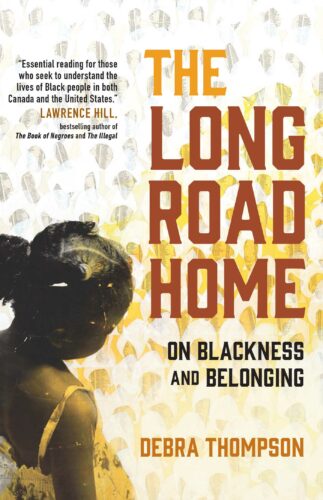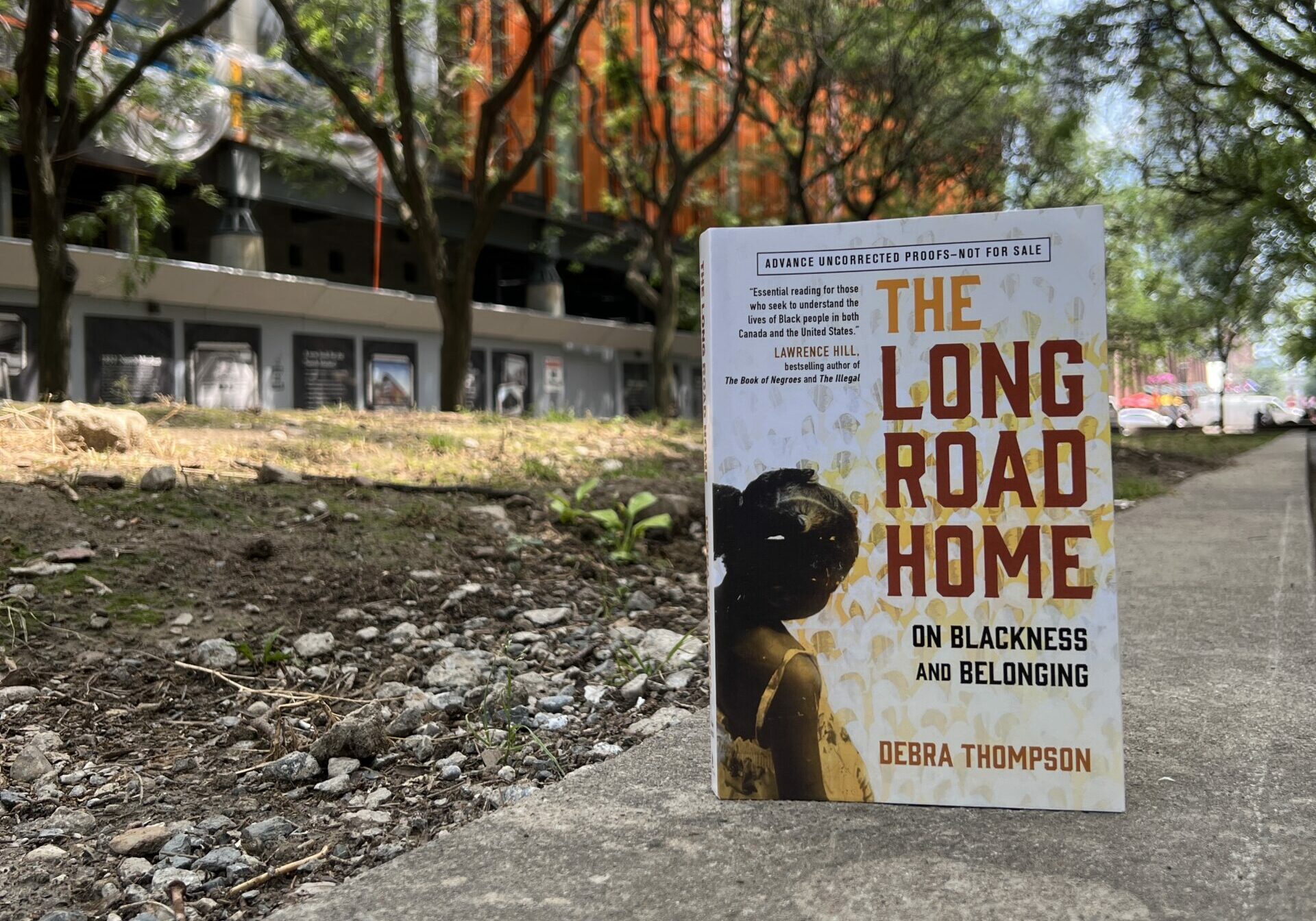Debra Thompson’s The Long Road Home: On Blackness and Belonging commands some deep introspection and is a book that is important to discuss. There is a comprehensive Reading Group Guide at the back of the book, with great questions, but we also came up with some additional ones that we found ourselves constantly asking while reading.
If you are stumbling onto this post without having read the book, expect a powerful memoir that is also loaded with historical facts. In The Long Road Home, Thompson shares what it was like to grow up in Oshawa, Ontario, as one of the only Black kids in most spaces. She writes about her family’s long history of living in Canada and what drove her into academia. Thompson describes what life was like at various schools in the United States and Canada, both as a Phd student and a professor, including her time at Carleton University, Harvard University, Ohio University, University of Northwestern, University of Oregon, and McGill University (where she remains as a Professor in Political Science today). Through her years teaching at different schools, Thompson studied (and experienced) racism and the effects of white supremacy in various settings, during both the Obama and Trump eras. She also explores the theme of belonging in-depth, constantly questioning where she feels welcomed and at ease… examining the reasons why some spaces feel comfortable while others remain unsafe.

The Long Road Home: On Blackness and Belonging is a powerful, important, and enthralling must-read. We’re glad to read it now, but wish it existed years ago, as it shares so much of the history that was missing in our textbooks. If it was added to the Canadian Grade 12 curriculum, or university courses, we’d all be better for it.
- When you think back to your childhood, what Black Canadian history was incorporated into the curriculum?
- Can you share about a time when you observed racism, be it a stereotype uttered by a family member or microaggression at the office, and didn’t do anything about it? Why do you think you remained silent? And what would you change the next time this happens?
- Describe a scenario when you’ve felt like the Only One. How did it make you feel? What changed the circumstances?
- In your opinion, what does it mean to be Canadian?
- Debra shared about walking around Boston and seeing dozens of statues and plaques about the founding of democracy and America, from a colonial perspective. If our cities shifted to incorporate all history, what would that look like? How would you like to see Toronto history shared?
- What part of Debra’s story hit you the hardest? A particular chapter that kept you up at night, or had you rethinking things?
- What three steps will you take after reading this book?
For every book in our #BooksMakeLifeBetter book club, we share a discussion guide to help spark ideas and conversation; use it for your own private book club, or refer to it while reading along with us. Find out more about our monthly book club with Simon & Schuster Canada.



 Follow Us On Instagram
Follow Us On Instagram
